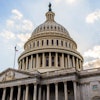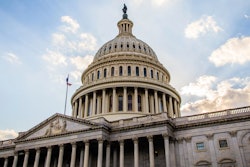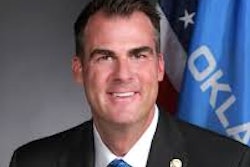The nation needs a more accountable higher education system that includes a stronger accreditation process with more information about the quality of colleges and universities, U.S. Education Secretary Margaret Spellings said Wednesday.
Convening a group of higher education experts to discuss the public/private system that regulates the nation’s colleges and universities, Spellings called accreditation “critically important” since it can promote continuous review of colleges and universities.
“There are some troubling signs before us. The rest of the world is on our heels,” she told about 60 higher education leaders invited to attend the Accreditation Forum in Washington, D.C.
The meeting came on the heels of a blue-ribbon panel’s recommendations this fall for new approaches to accreditation. In its report, “A Test of Leadership,” the National Commission on the Future of Higher Education said accreditation can hamper rather than promote innovation by focusing too much on traditional process and governance issues instead of student achievement and quality.
Forum participants also suggested another way to encourage innovation: Make more comparisons of colleges and universities publicly available to help prospective students and their families. Despite colleges with different missions, such comparisons can chart the progress of individual institutions on core issues such as student access and success.
At least one attendee said such comparisons may help identify effective practices in serving minority students.
“Comparable institutions are dropping out minority students at vastly different rates,” said Dr. James L. Applegate, vice president for academic affairs at the Kentucky Council on Postsecondary Education.














